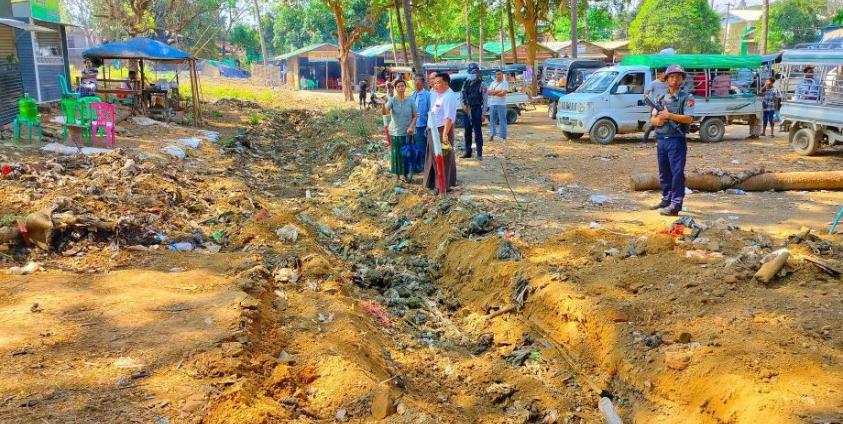The Mrauk-U Cultural Heritage Conservation Association is excavating the original drainage channels at the Nandawyargon (palace mound) in Mrauk-U, the last royal capital of Arakanese kings.
The drainage channels at the base of the Nandawyargon are blocked, and the foundation is being eroded by rainwater that does not flow away due to blocked drainage channels, according to the chairwoman of the Mrauk-U Cultural Heritage Conservation Association, Daw Khin Than.
“We are re-digging the original drainage channels for proper flow of water in Nandawyargon, and also for pedestrians to be able to walk more conveniently,” she said.
The drainage channels were blocked because of eateries, shops and a bus terminal that opened at the base of Nandawyargon.
The association and Mrauk-U Township municipality are working together to dredge the blocked drainage channels.
“Nandawyargon must be presentable when UNESCO experts come. They will mainly take a look at Nandawyargon,” said Daw Khin Than.
Mrauk-U resident Ma Hay Mon Hlaing said Mrauk-U residents should also cooperate and make efforts for their town to get inscribed on the UNESCO World Heritage List.
“There is a litter problem. There is litter everywhere, including near pagodas. Though municipal workers collect garbage, if residents keep on littering, the town will lose its attraction,” she said.
UNESCO experts are expected to make field surveys of the ancient town around June or July, and the World Heritage Committee will make a final decision on Mrauk-U’s bid for inscription on the UNESCO World Heritage List thereafter.
From the early 15th century to the late 1800s, Mrauk-U was the seat of Arakanese kings, who at the height of their power controlled an area covering large parts of eastern Bengal, modern-day Arakan State and the western part of lower Myanmar. Some ancient temples were damaged in fighting between Myanmar’s military and the Arakan Army (AA) in 2019 and 2020.








